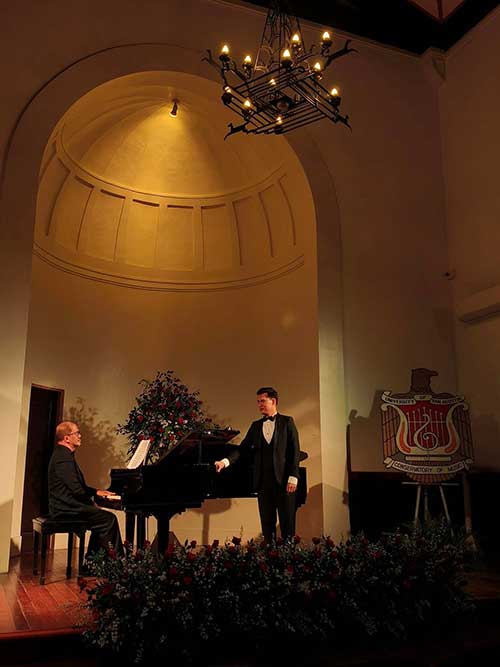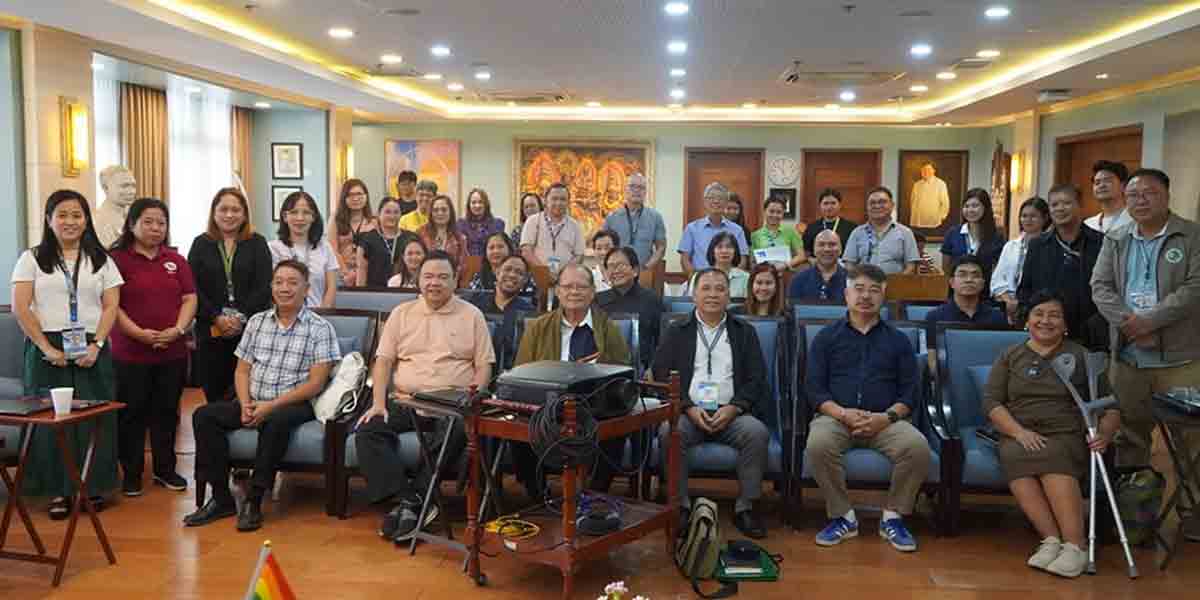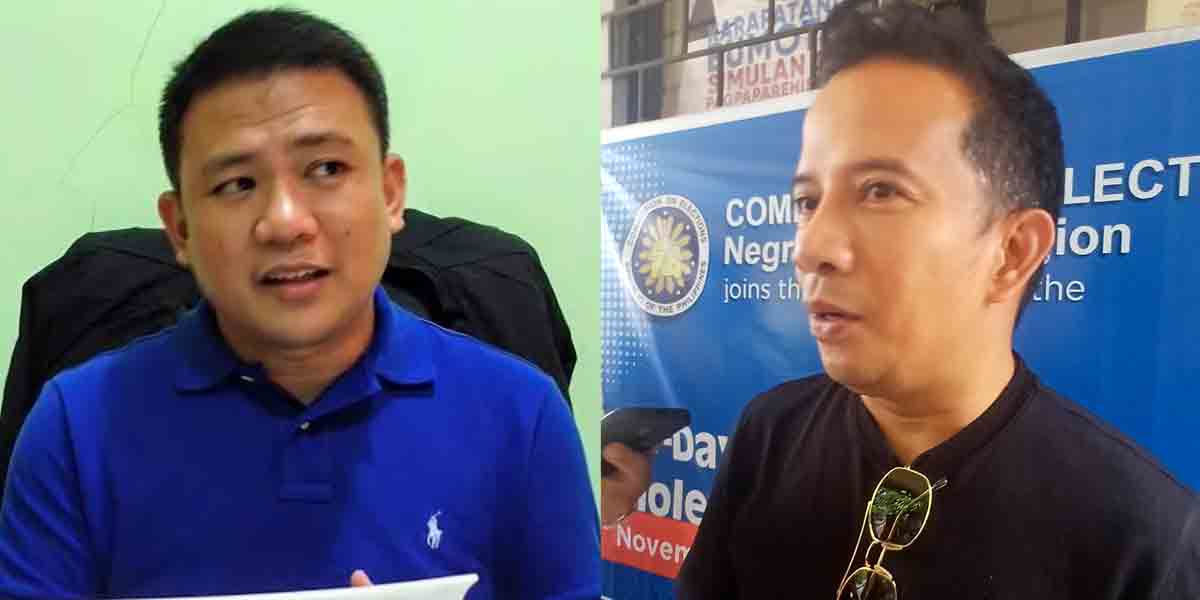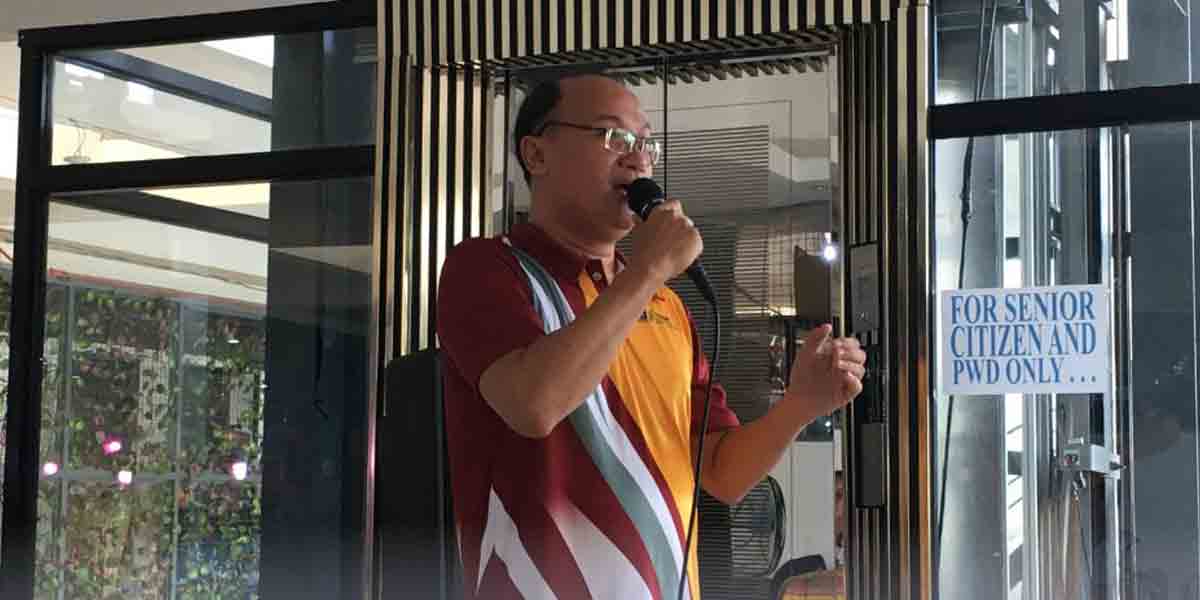
By John Anthony S. Estolloso
I FIRST heard Yves Adrian Gabasa sing in a major classical role as the bass solo for Mozart’s Requiem, as performed last year by the combined choirs of the University of San Agustin. Now, it appears that he is more than capable of hitting notes at the opposite end of the musical scale and in his singing, breathe life to the little-known compositions of classical music.
The evening of August 21 was for Gabasa alone: there was no choir to share the limelight with him, save perhaps the singers of the exquisite invocation at the start of the recital. Once more, the staid opulence and excellent acoustics of the performance hall of the UPV’s Museum of Art and Cultural Heritage lent a fitting backdrop to the tenor’s singing, giving his performance a worthy stage to showcase the subtler nuances of his repertoire.
With students and faculty of the University of San Agustin’s conservatory flocking to hear him sing, the recital was a milestone for Gabasa’s ‘iter’ (Latin for journey), as the concert was aptly titled, even as it provides a mellow limelight for classical art songs usually delegated to the shelves as obscura. The evening’s programme was lean but it was no mean feat for the tenor: not when the demand goes beyond sheer delivery.
Take for instance Allessandro Scarlatti’s songs: his collection of five short love poems set to music deviates from the extravagance (for both set and singing) of his usual three-act Baroque-Classical operas, and thus demand a more delicate execution in the performance: the poetry and the romance must surface in the singing. The same can be said of Reynaldo Hann’s selection of songs from his Premier recueil (first collection). Though the composer’s roots were not exactly French, his Parisian musical education sufficed to capture the zeitgeist of a society that read the verses of Victor Hugo and Paul Verlaine, providing Hann with sublime lyrics for his music.
André Previn’s music was idiosyncratic, ranging from die-hard classical to avantgarde jazz; I first encountered his name in the credits of the film adaptations of Lerner and Loewe’s musicals, that is, as conductor and arranger of the films’ scores. That he set the poems of Philip Larkin and William Carlos Williams to music was an apotheotic commentary on song-writing: great poetry always lends itself to song. And as if to give credence to this idea, Joaquín Turina’s ‘Tres Poemas’ – three musical settings of Gustavo Adolfo Bécquer’s poems that concluded the recital – were redolent of color, flavor, and flair, bringing out the cultural zeitgeist from which the words and the music sprung forth.
Throughout the technical demands of these songs, Gabasa’s clarity of diction was sharp, the lyric quality of his singing controlled, robust, and well-phrased, and the performance intelligently anchored on an understanding of the cultural and literary influences of the pieces. From a pedantic point of view, one might consider it a lecture on the eclecticism of music, albeit on a more intimate venue where pianist and tenor offer the audience a selection of musical samplers.
* * * * *
Under the tutelary gaze of Prof. Wynn Natividad and with Prof. Gerardo Vicente Muyuela’s impeccable accompaniment on the piano, Gabasa was stellar that evening – and promising. The general audience has yet to hear more of his essays into the performative aspect of vocal music, but one is inclined to believe that he will accomplish great things if placed on a grander stage and given a brighter spotlight.
In the past months, we have heard stentorian deliveries of operatic arias and leider from other equally superb singers of the Conservatory: the likes of soprano Amabelle Pamocol-Castro and tenor Jomel Garcia have filled many a performance hall and stage with the sheer magnitude and sweeping quality of their voices. Now here comes Yves Adrian Gabasa to add to that roster: a soft, lyric tenor to acquaint our musical tastes to the more recondite gems of classical music.
[The writer is the subject area coordinator for Social Studies in one of the private schools of the city. The photos are from Amabelle Pamocol-Castro.]



















